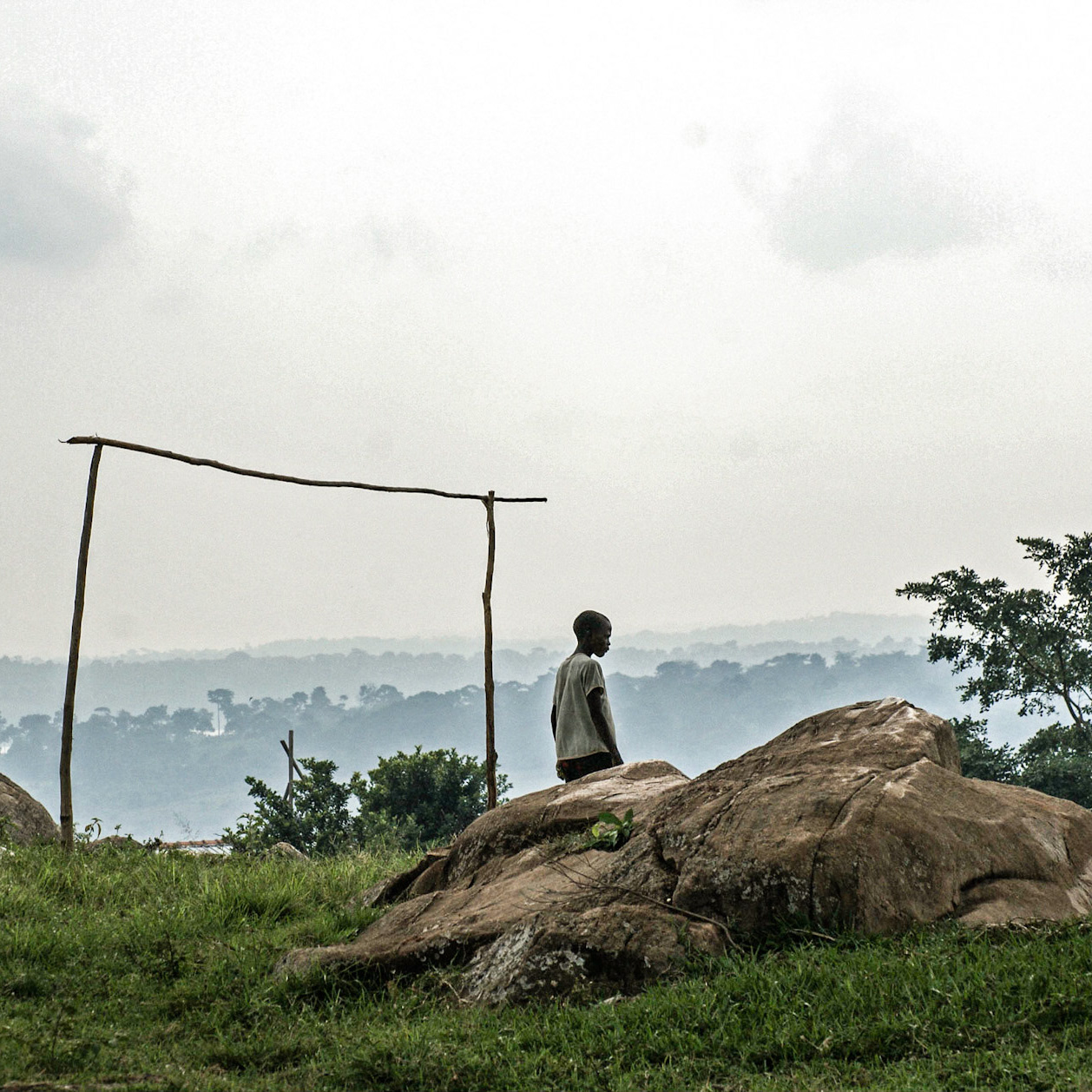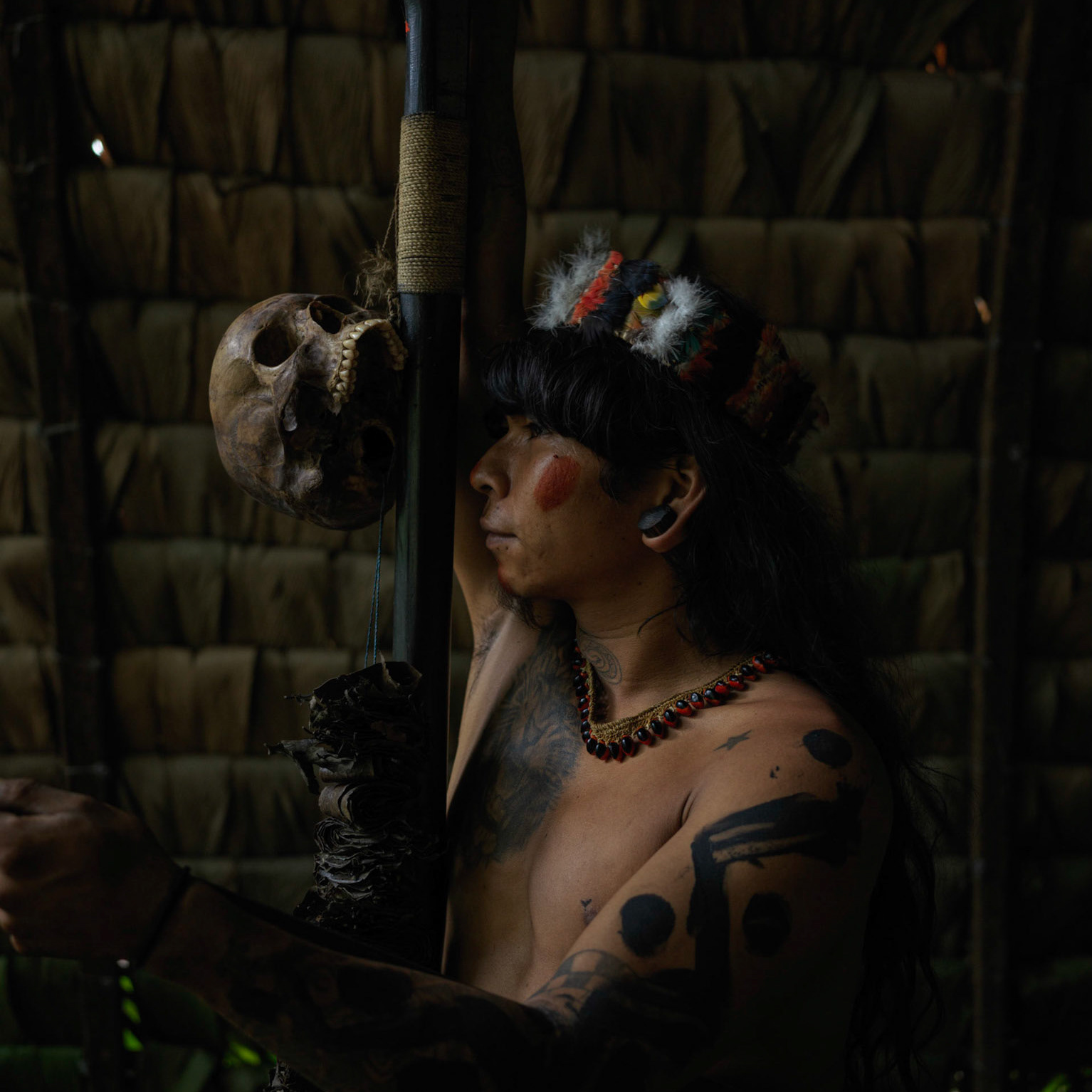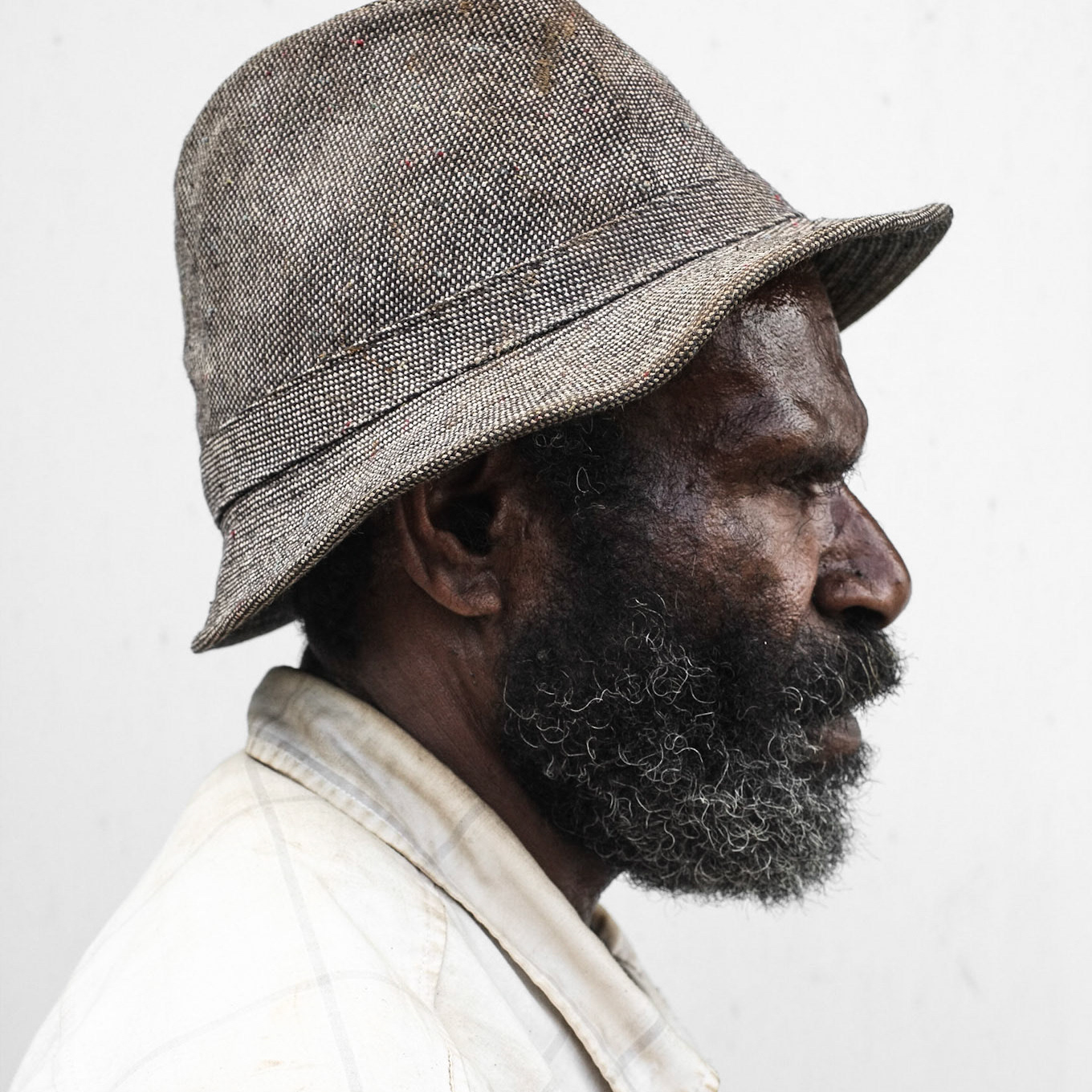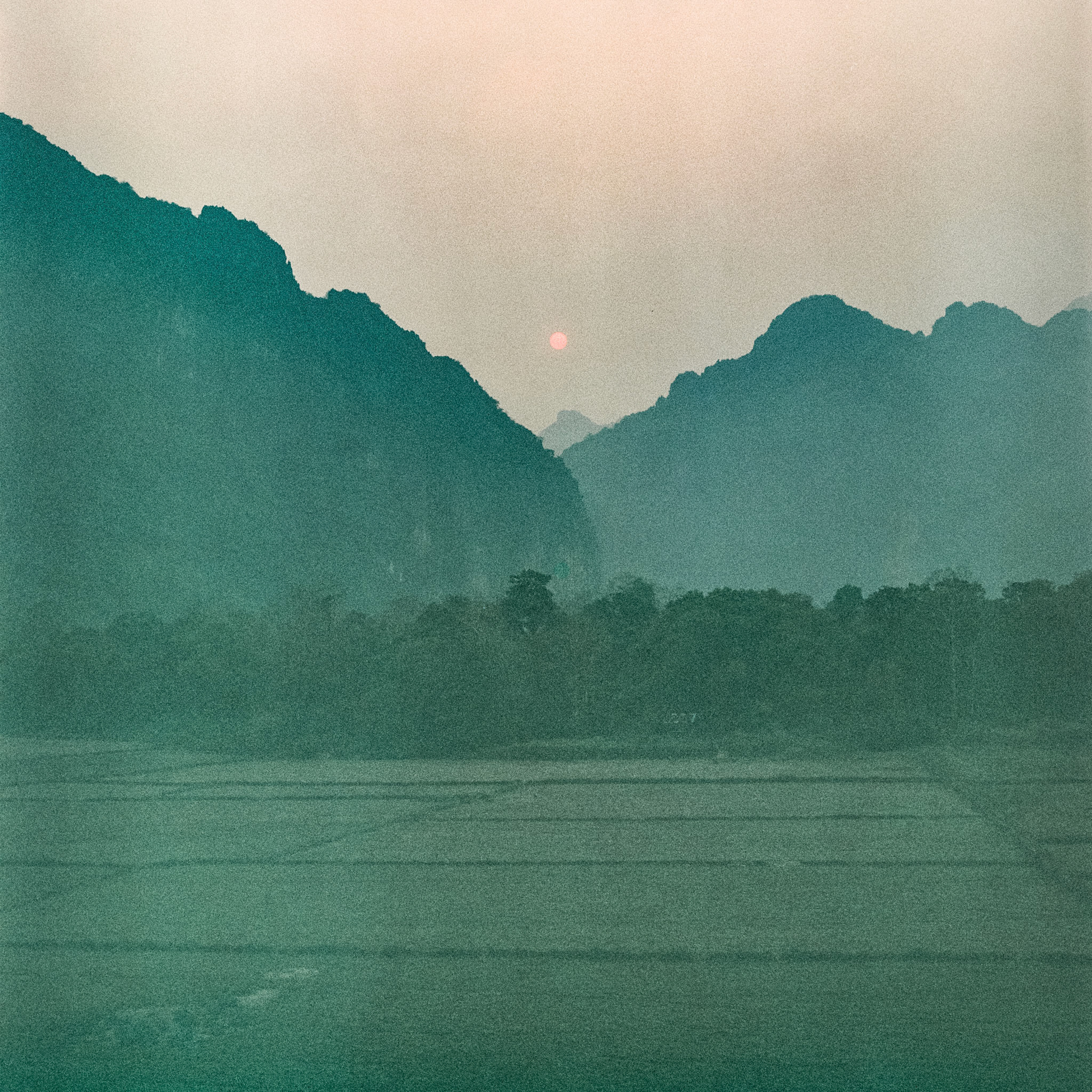Yasuni National Park, Ecuador | 2023
The 14.000-year split
The Waorani and the imminent rise of solastalgia by fossil fuel exploitation in Yasuni National Park.
The night sky illuminates by the open flares of nearby oil stations in Yasuni National Park, Ecuador.
The Yasuní National Park, located in Ecuador's Amazon rainforest, is renowned for its incredible biodiversity and its significance as a home to indigenous tribes, including the Waorani people. However, the presence of the oil industry, the 'Petroleros companies', have had a profound impact on both the environment and the indigenous communities in the area.
The 'Petroleros', as locals use to call them [s.a. Petro Amazonas, Petro Ecuador, Petro Oriental, Repsol, Andes Petroleum] have been extracting oil from the Yasuní National Park, primarily for economic reasons since 2007. This extraction process involves drilling wells, constructing pipelines, and implementing other infrastructure that disrupts the delicate ecosystem of the rainforest. The pollution caused by oil spills, leaks, and waste disposal further exacerbates environmental degradation, affecting the flora, fauna, and water sources on which the indigenous tribes rely.
For the Waorani people, who have lived in harmony with the rainforest for centuries, the recent intrusion of the oil industry has caused immense challenges. The disruption of their ancestral lands not only damages their physical surroundings but also threatens their cultural identity and way of life. The Waorani rely on the forest for their sustenance, gathering food, medicinal plants, and materials for shelter and tools. The encroachment of oil operations severely limits their access to these resources, forcing them to adapt to a new reality or face the loss of their traditional practices. Solastalgia as a result, the Waorani experience the change of land and the demise of its cultural/historical heritage vanished in recent decades.
Additionally, the influx of oil workers and the associated infrastructure has brought significant social and cultural changes to the Waorani community. The introduction of modern amenities, such as roads, power lines, and buildings, has led to increased contact with the outside world, bringing both positive and negative influences. While some Waorani individuals have found employment opportunities within the industry, there are also reports of exploitation, social disruption, and conflicts arising from the clash of traditional values and the values promoted by the oil industry.
Furthermore, the extraction activities in the Yasuní National Park have triggered a loss of biodiversity, which directly affects Waorani's subsistence. The destruction of habitats, contamination of water sources, and disruption of ecological cycles have depleted wildlife populations, making it increasingly difficult for the Waorani to find sufficient food and resources within their traditional territories.
The impact of the Petroleros company's activities in the Yasuní National Park has sparked considerable controversy and debate, both within Ecuador and on an international scale. Environmental activists, indigenous rights advocates, and concerned citizens have called for the protection of the park and the preservation of the indigenous way of life. Some argue that the oil industry's short-term economic benefits are outweighed by the long-term ecological and cultural consequences.
Efforts have been made to mitigate these effects, such as creating protected areas within the park, implementing environmental regulations, and establishing a dialogue between the oil industry and indigenous communities. However, achieving a sustainable balance between economic development and the preservation of indigenous cultures and the environment remains a complex challenge.
In conclusion, the Petroleros company's oil extraction in the Yasuní National Park has had a profound effect on the indigenous tribes, particularly the Waorani people. The intrusion of the oil industry disrupts their ancestral lands, threatens their cultural practices, and compromises their ability to sustain themselves from the forest. The consequences extend beyond the indigenous communities, impacting the park's biodiversity and contributing to wider debates about environmental conservation and indigenous rights. Finding a sustainable solution that respects the rights and traditions of the indigenous tribes while balancing economic development remains an ongoing challenge in this delicate ecosystem which not only Ecuador or South America relies on, but our entire planet as a whole.
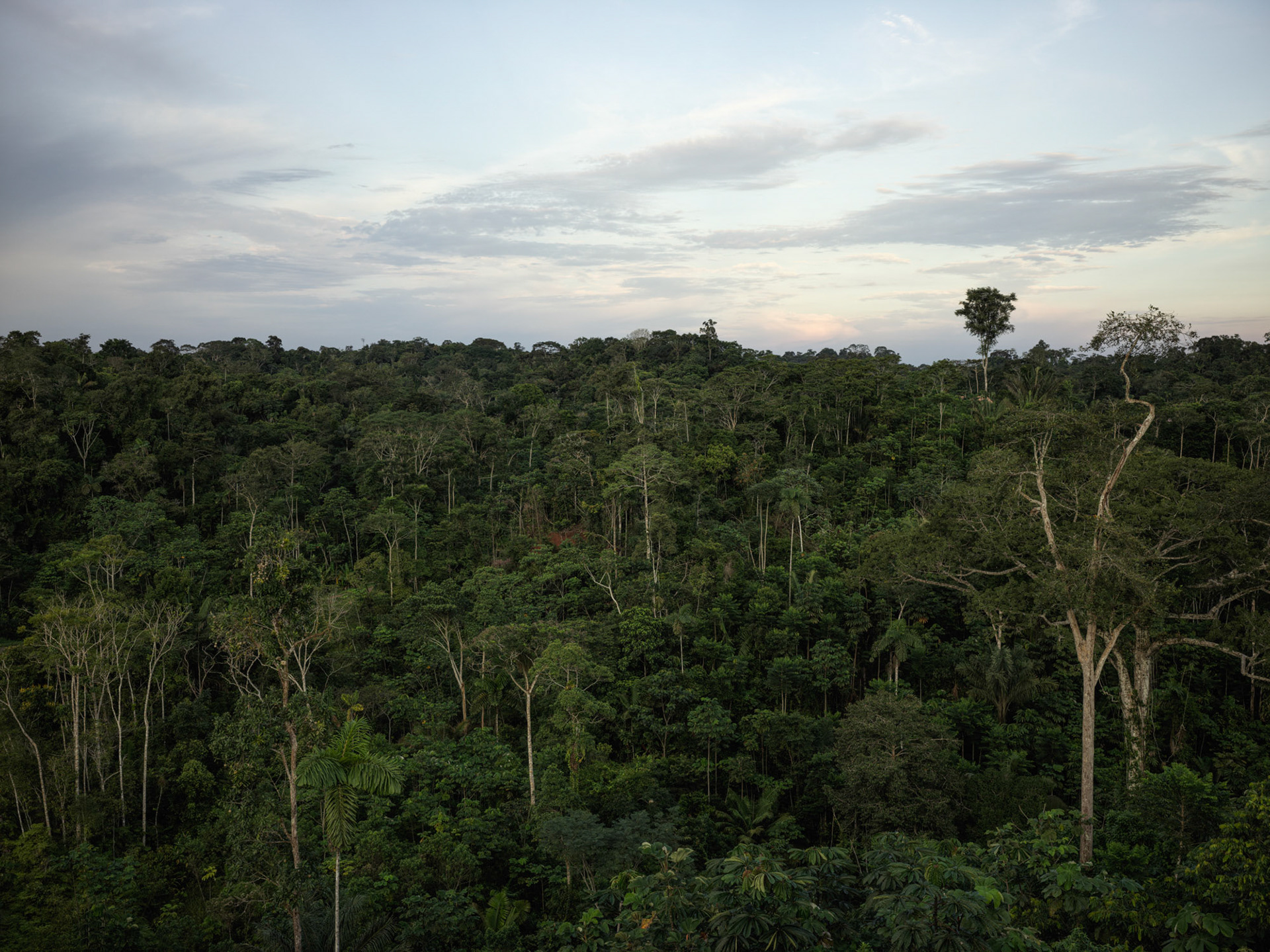
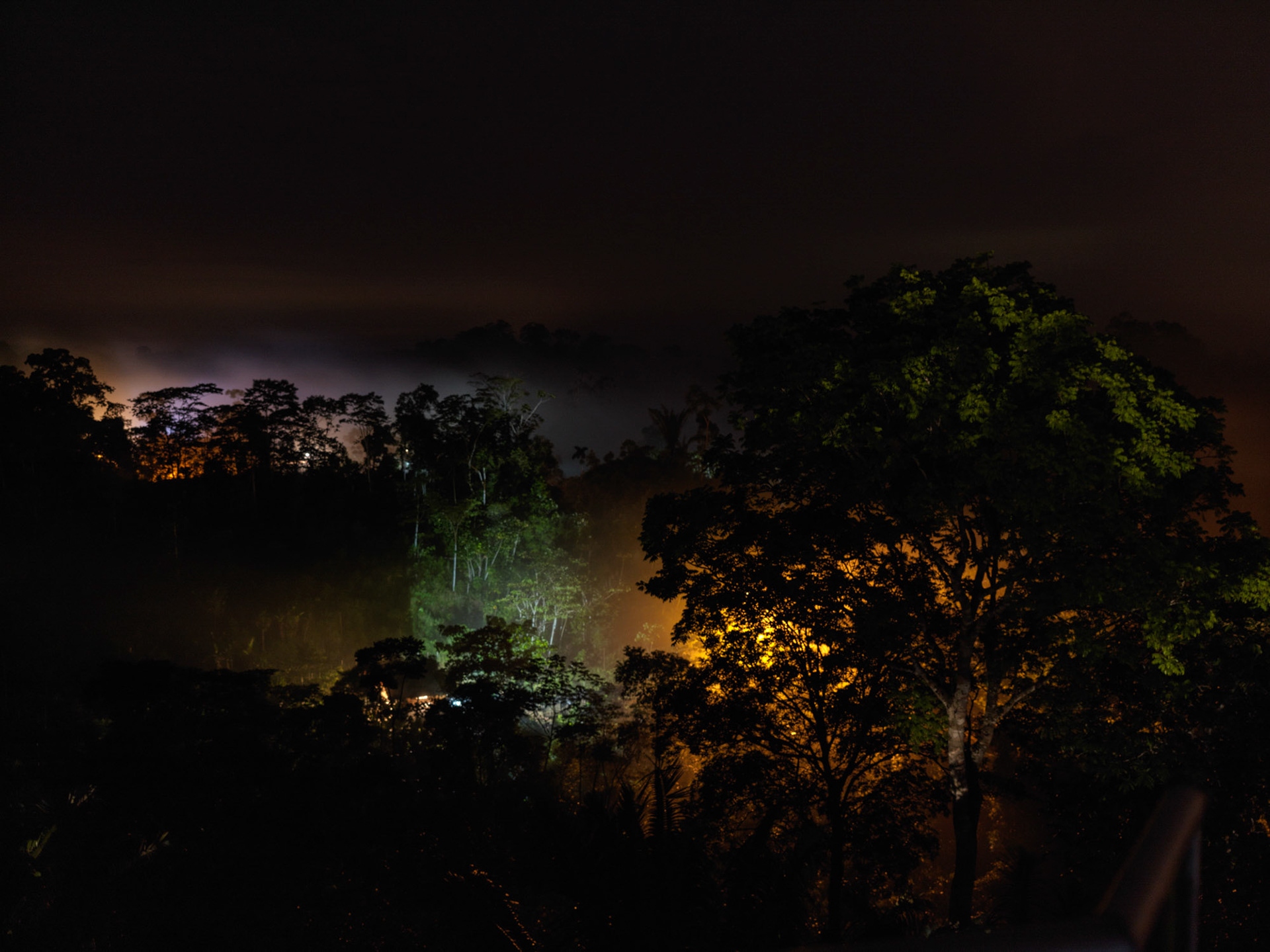
During the day, the oil rigs seem hidden due to the thick canopy of the Amazon rainforest whereas at night, illumination by lights and gas flares and the rattling sound of the diesel generators possess the jungle.
The most biodiverse region in the world.
Yasuní National Park is considered one of the most biodiverse areas in the world. The park, located in the Amazon rainforest of Ecuador, boasts an extraordinary richness of plant and animal species. It is often referred to as a hotspot of biodiversity due to its high levels of species diversity and endemism.
The Yasuní National Park's exceptional biodiversity has led to its recognition as a UNESCO Biosphere Reserve and has garnered international attention for its conservation significance. Efforts to protect this unique ecosystem and its indigenous communities have been ongoing, highlighting the importance of preserving this invaluable natural heritage.
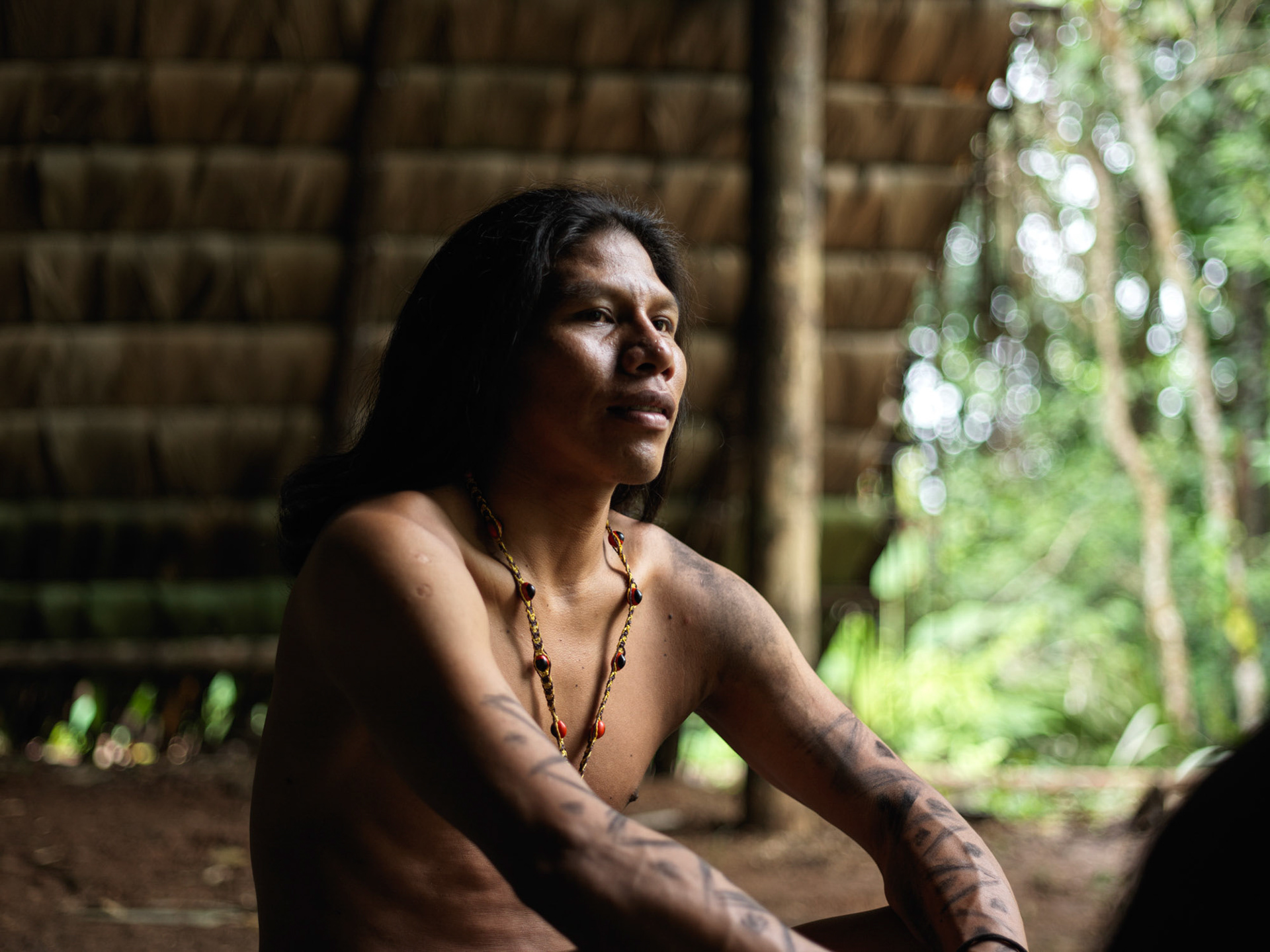
“For centuries, civilizations have come and their methods kill us.
But this time, the impact is too great and it will affect everyone: climate change,,
But this time, the impact is too great and it will affect everyone: climate change,,
- Ewane, member of the Waorani Tribe
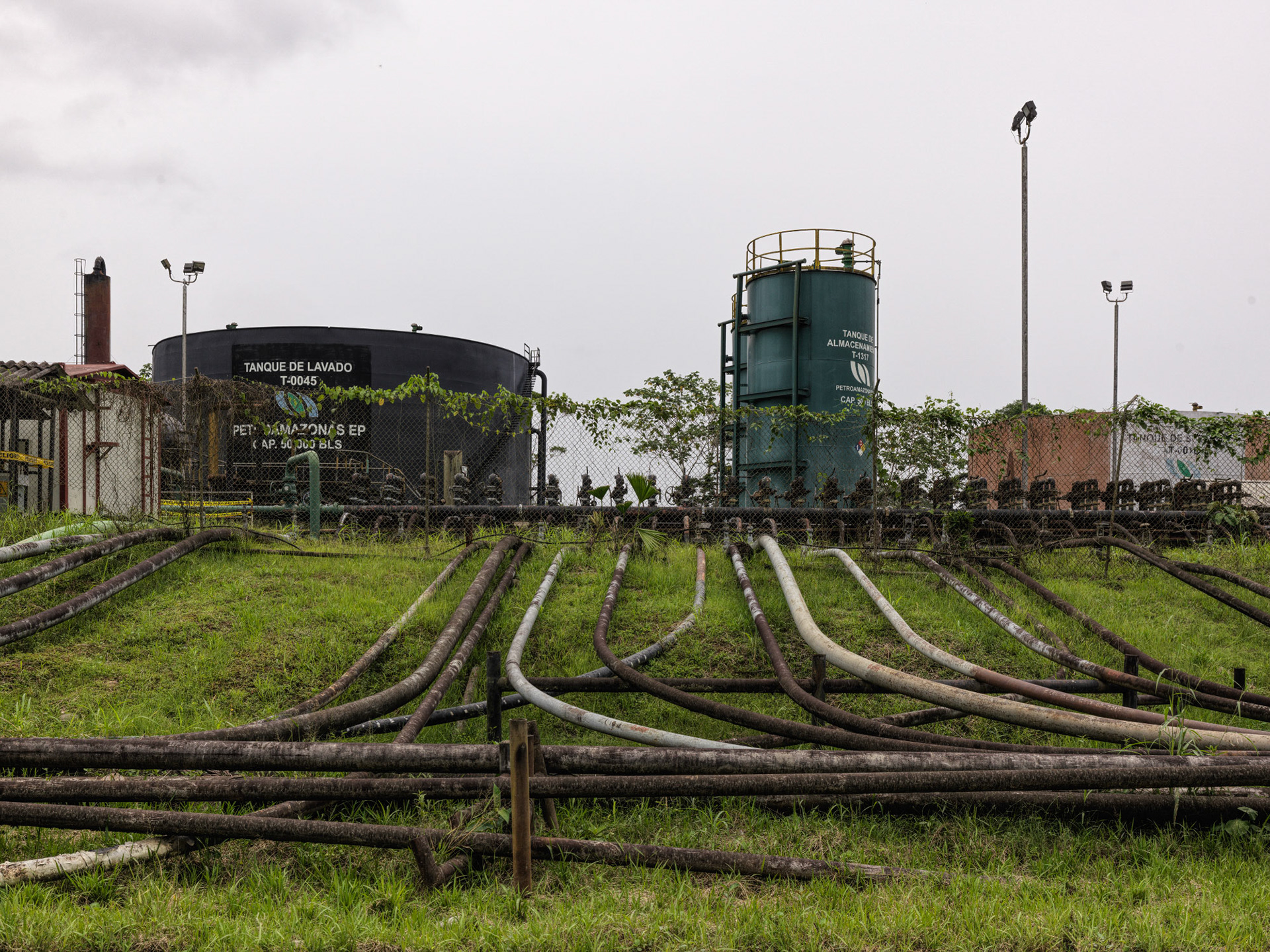
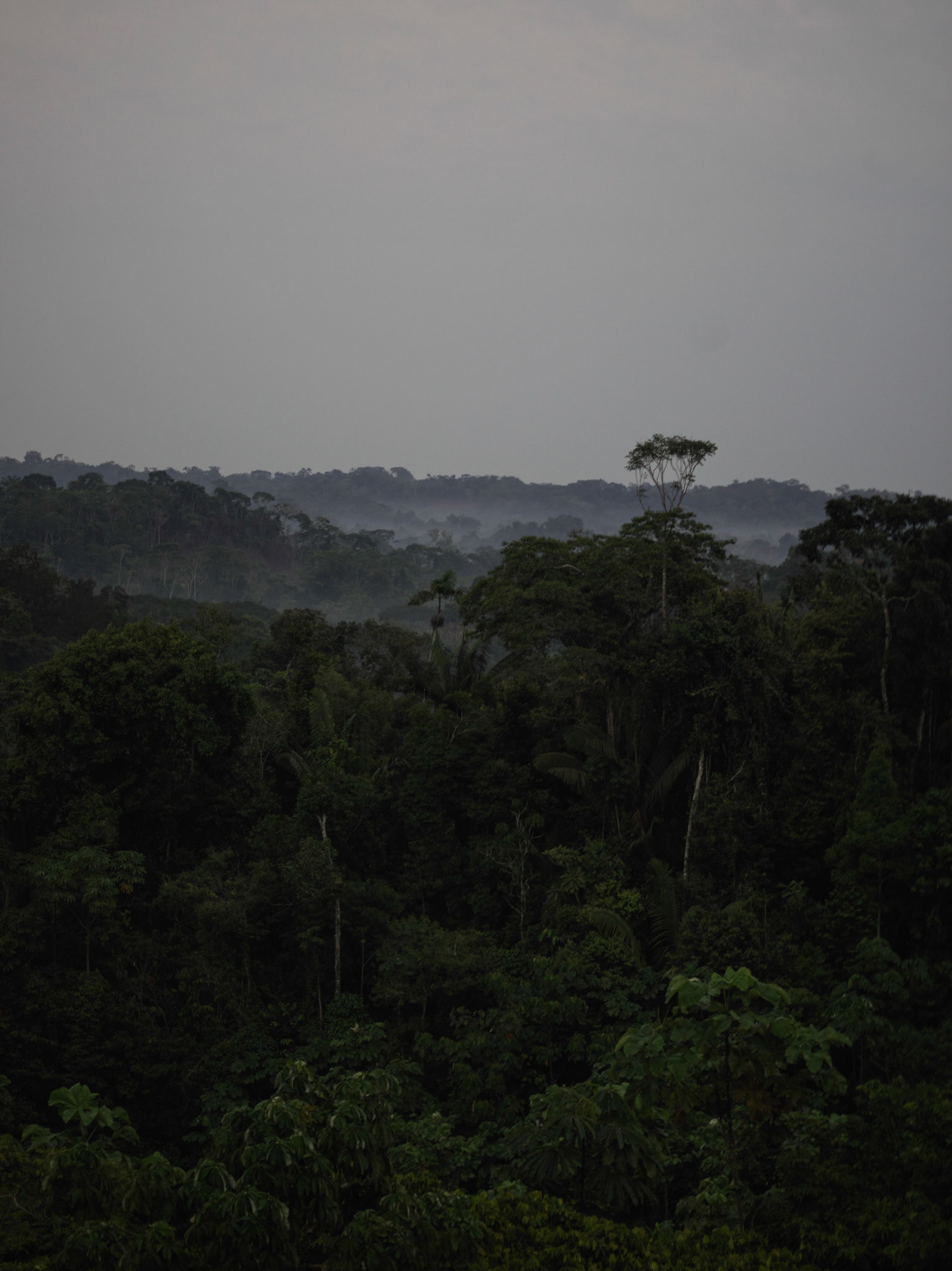
Left: An oil rig nearby near the borders of the Pastaza / Napo / Orrelana regions, Yasuni National Park. These pipes run on the sides of roads and cross rivers to rigs and stations divided over the park for hundreds of miles.
Right: The Yasuni rainforest at the dawn of day.
Right: The Yasuni rainforest at the dawn of day.
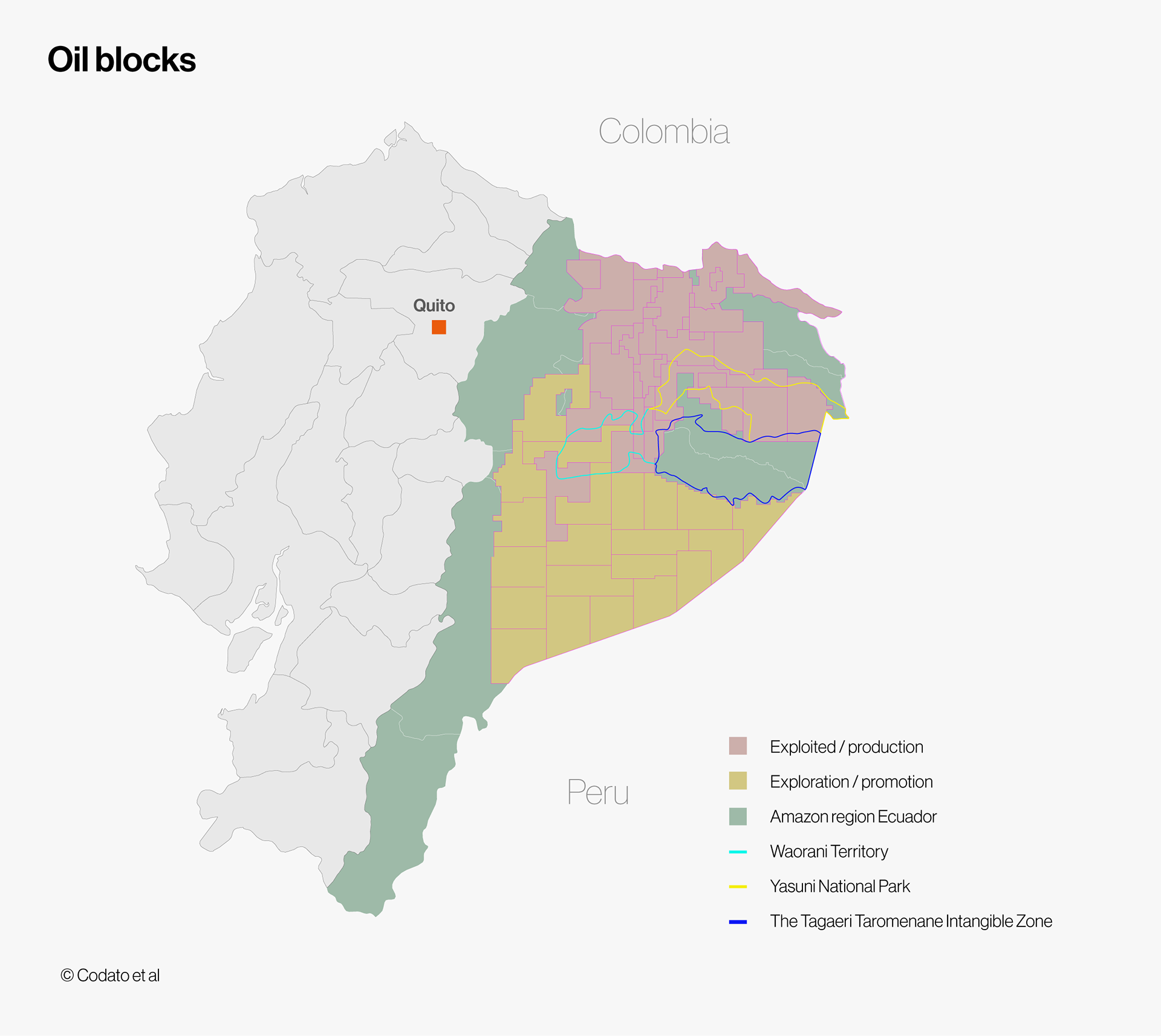
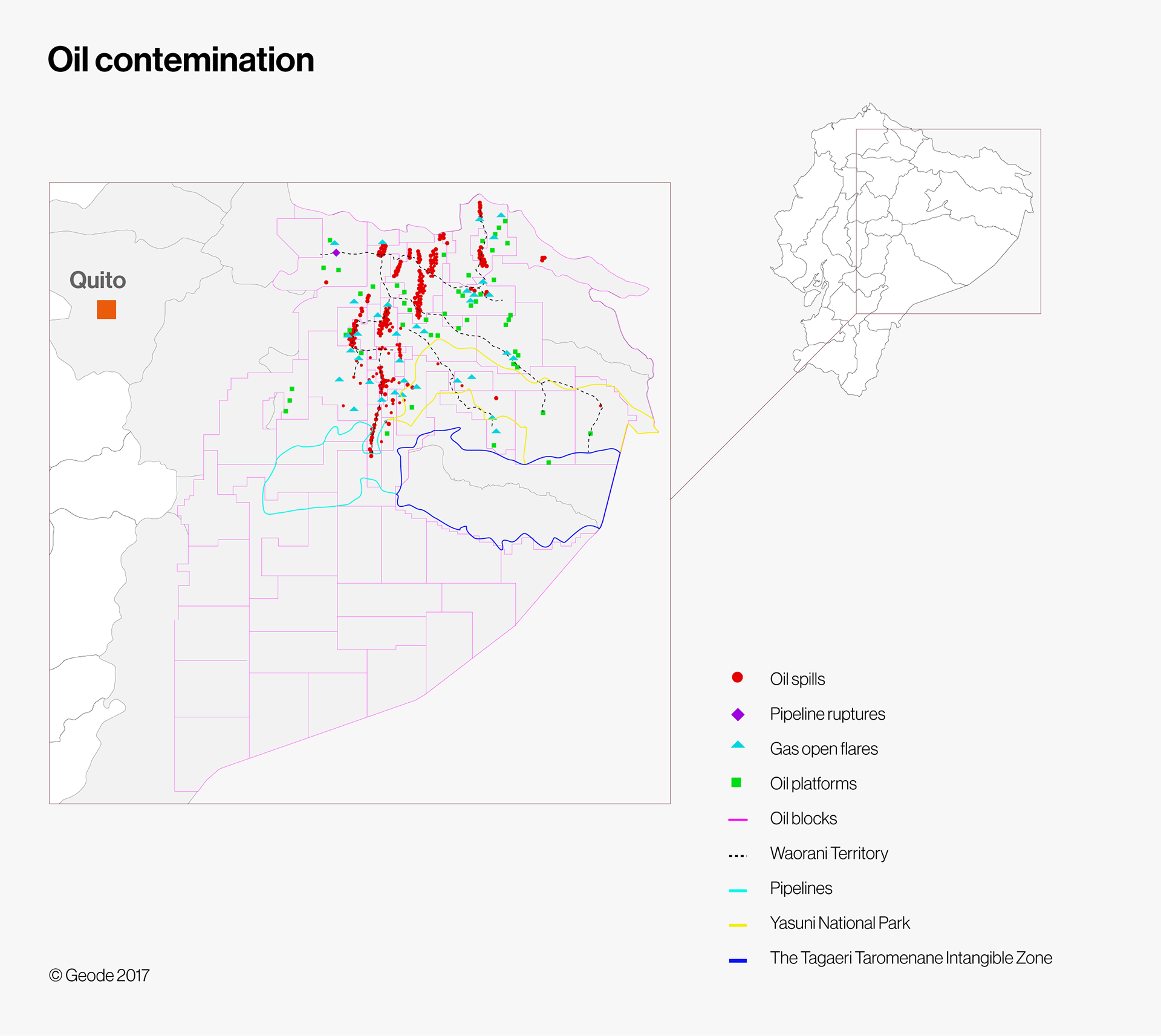
Environmental Impact:
> The biodiversity of the Yasuní National Park is unparalleled, housing around 2,274 known species of trees and an estimated 100,000 species of insects per hectare. Oil extraction threatens this rich biodiversity, including rare and endangered species.
> It is estimated that oil extraction in the Yasuní National Park has resulted in the release of over 400,000 barrels of crude oil into the environment. The Yasuní National Park in Ecuador is estimated to hold approximately 20% of the country's proven oil reserves. However, it's important to note that this percentage may vary over time due to ongoing exploration and discoveries of new oil fields.
> Oil spills and leaks have contaminated rivers and water sources within the park, affecting the aquatic ecosystem and endangering the health of indigenous communities.> The extraction process requires the construction of infrastructure, including roads and pipelines, leading to deforestation and habitat destruction. It is estimated that oil operations have contributed to the loss of approximately 160,000 hectares (395,000 acres) of forest in the park.
Conservation Efforts:
> In 2007, the Ecuadorian government proposed the Yasuní-ITT Initiative, which aimed to keep oil reserves within the park underground in exchange for international contributions equal to half the revenue that would have been generated from their extraction. However, this initiative was terminated in 2013 due to insufficient international funding.
> Protected areas have been established within the park to safeguard specific regions and mitigate the impact of oil extraction, but their effectiveness in preserving the ecosystem and protecting the indigenous communities remains a challenge.
> These statistics illustrate the alarming environmental and social consequences of oil extraction by the petrol companies in the Yasuní National Park. It is crucial to consider sustainable alternatives that prioritize the preservation of the park's unique biodiversity and respect the rights and well-being of the indigenous tribes, such as the Waorani, who have called this area home for generations.
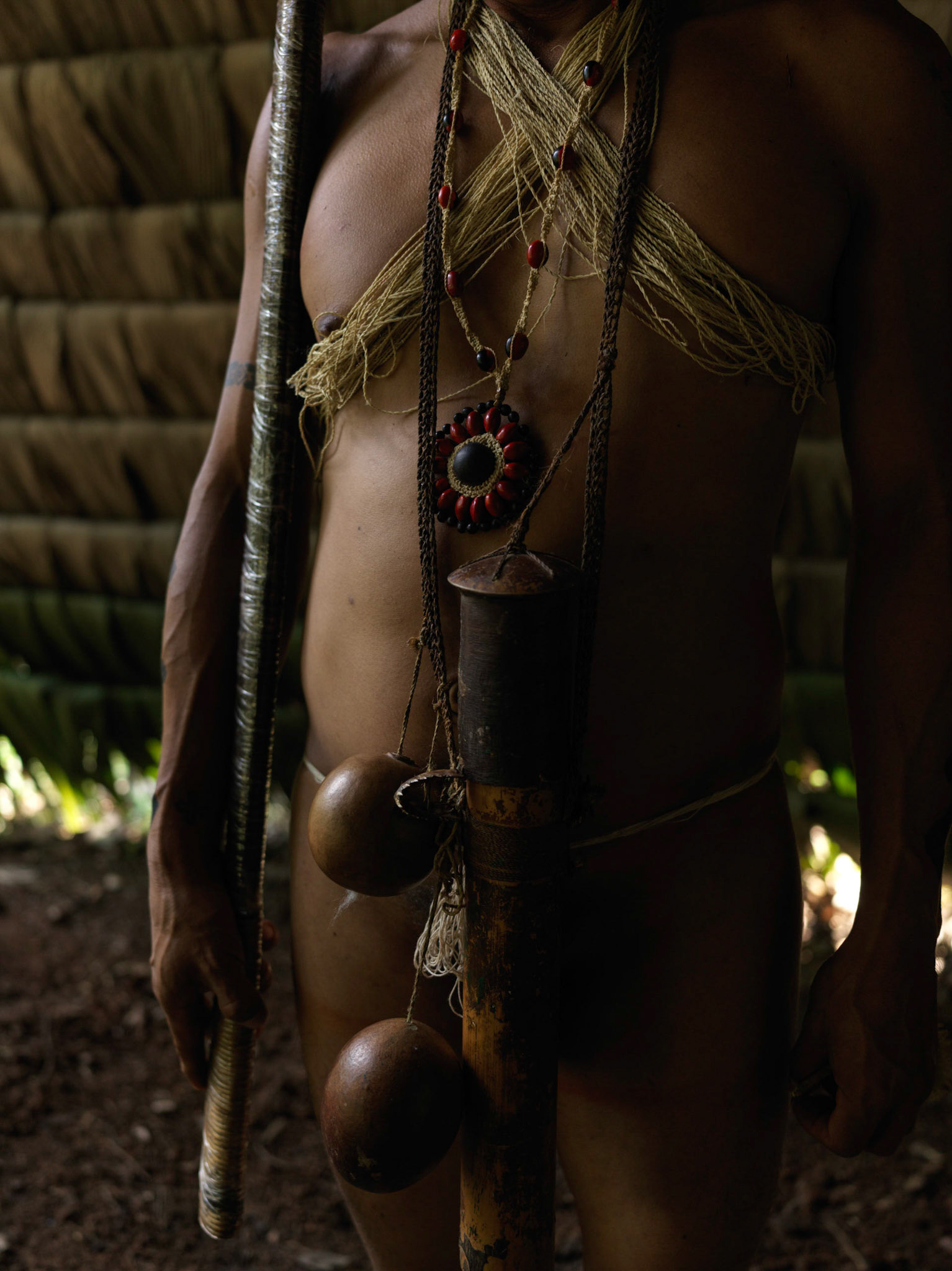
Impact on Indigenous Communities:
> The Waorani people, whose traditional lands encompass the Yasuní National Park, have faced significant challenges due to oil extraction. It is estimated that around 30,000 Waorani individuals have been directly affected.
> The disruption of ancestral lands and the contamination of water sources have had severe consequences for the Waorani's traditional livelihoods, forcing them to rely on alternative means of survival.
> Loss of biodiversity, resulting from oil extraction, has reduced the availability of traditional food sources, such as fish, game, and medicinal plants, leading to increased food insecurity among the Waorani.
> Social and cultural changes have been observed within the Waorani community due to the influx of oil workers and the introduction of modern amenities. These changes have caused a clash between traditional values and the influence of the oil industry, leading to social disruptions and conflicts.

“The Waoranis have survived by the preservation of biodiversity for centuries,,
- Ewane, member of the Waorani Tribe
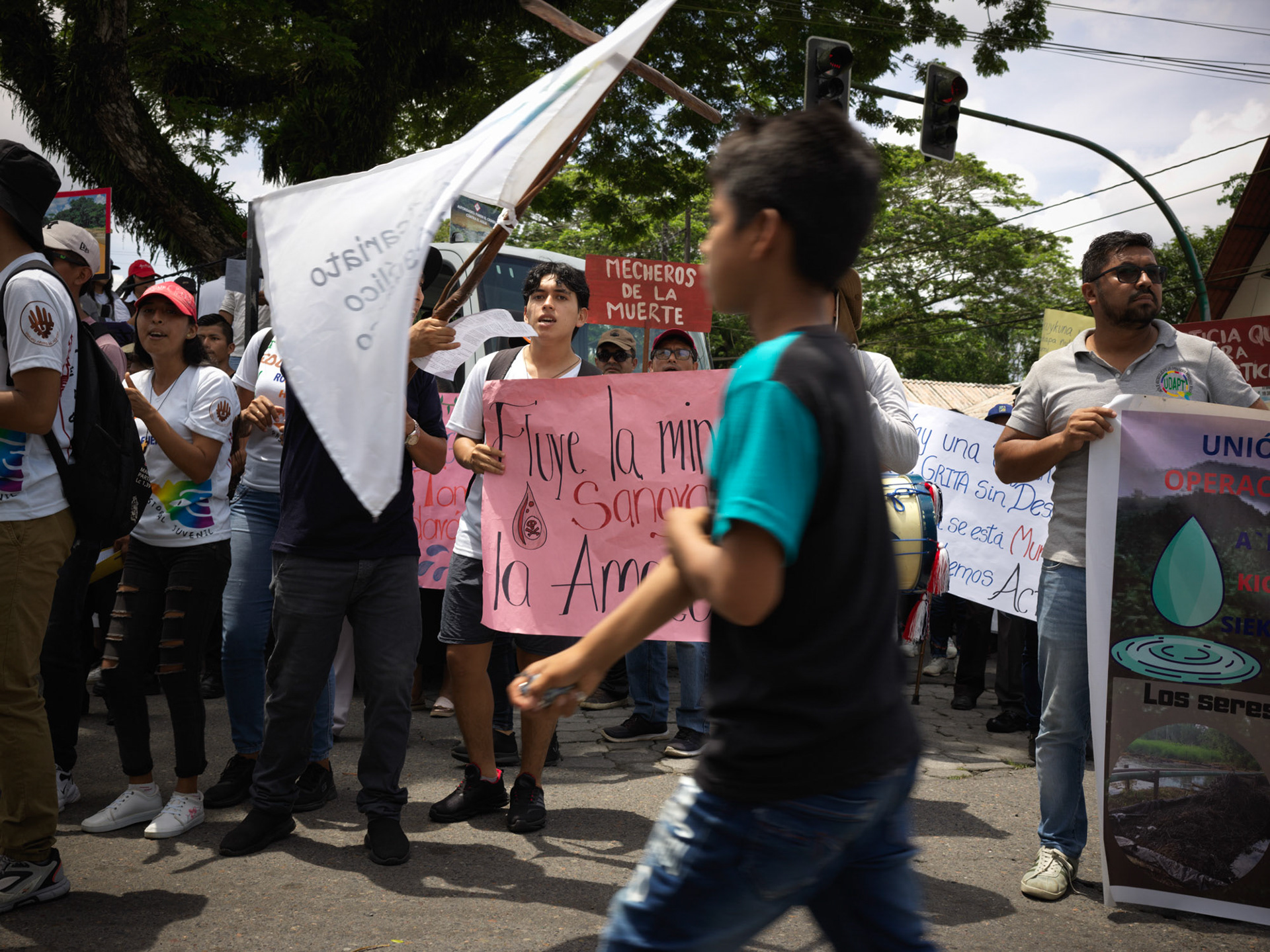
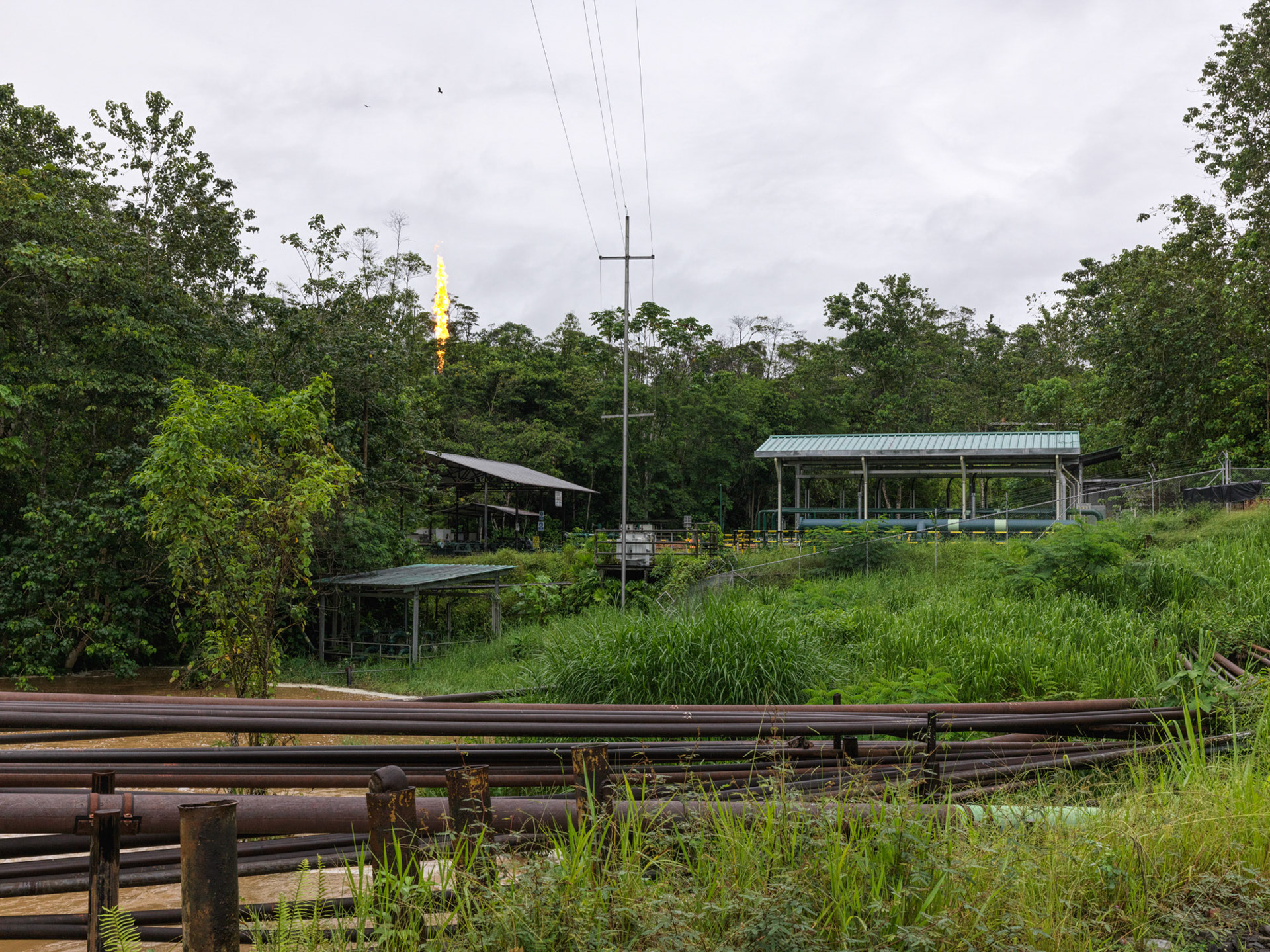
March 2023: A demonstration in Coca to address the reality and negative impact of the pollution of water sources s.a. rivers and groundwater in nearby regions due to oil and mining activities.
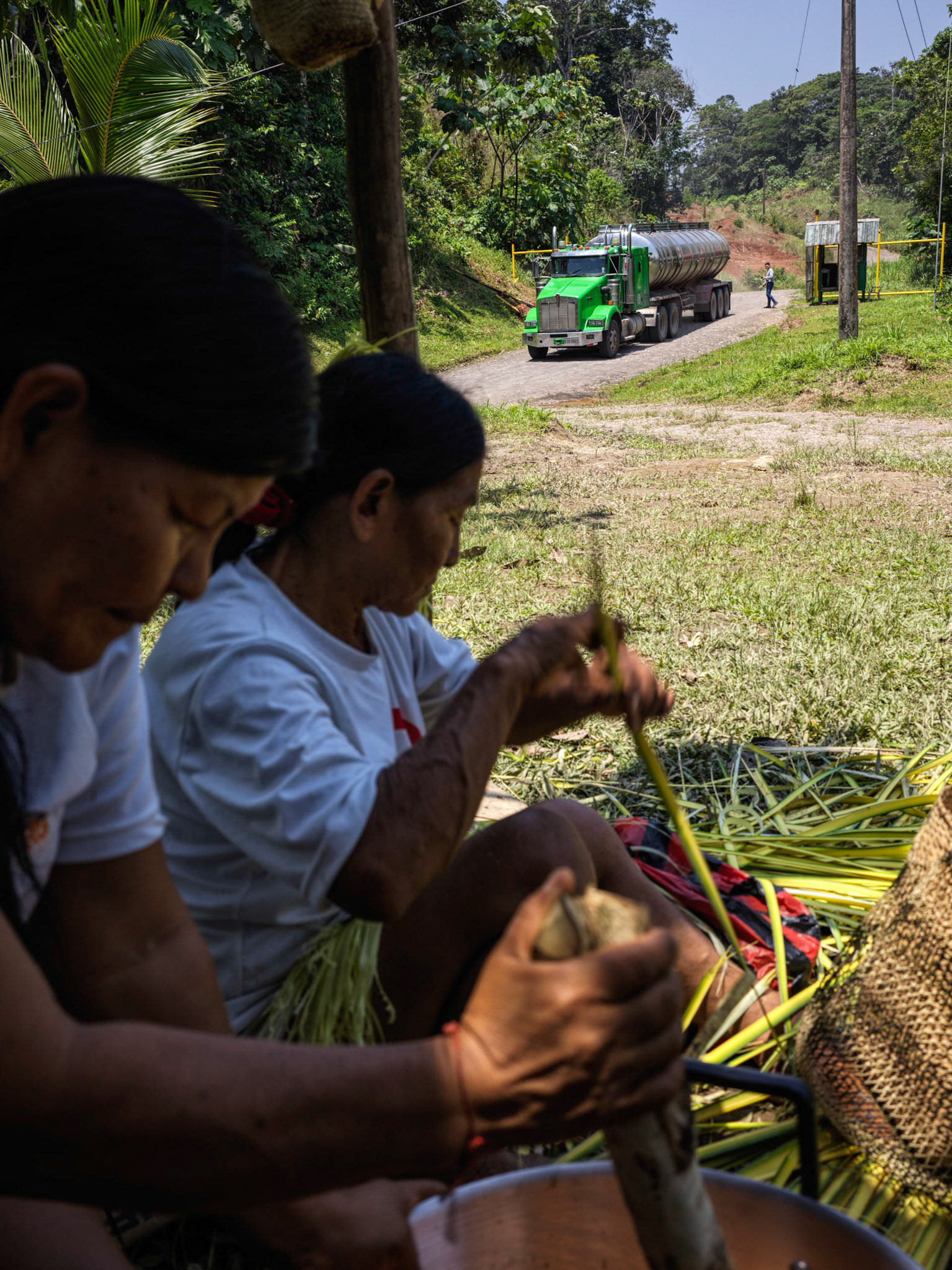
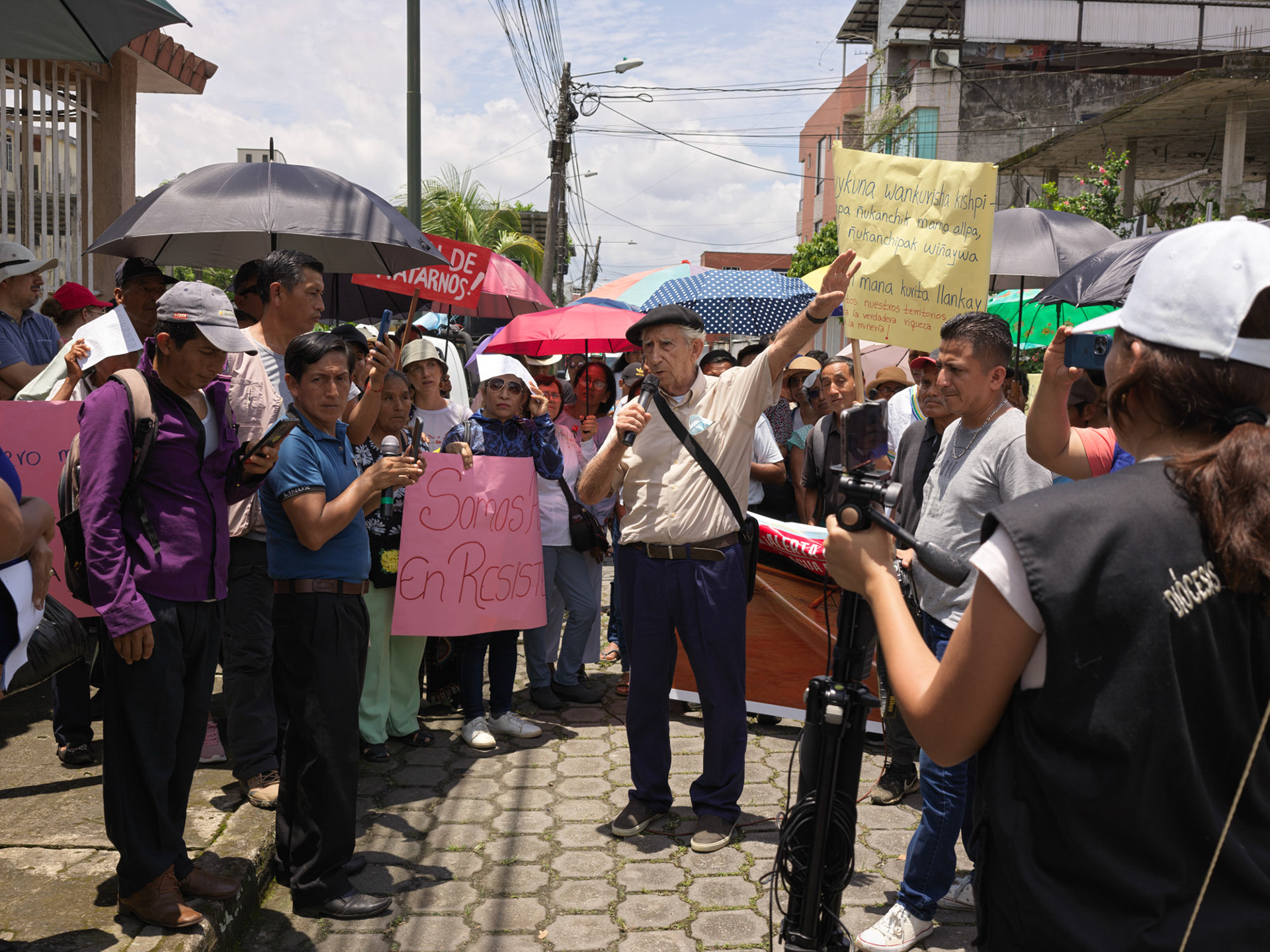
Left: March 2023: A demonstration in Coca to address the reality and negative impact of the pollution of water sources s.a. rivers and groundwater in nearby regions due to oil and mining activities.
Right: A tanker truck arrives at a local oil rig nearby the village of Armadillo while in the foreground women are preparing leaves by hand as a natural source of weaving material.
Right: A tanker truck arrives at a local oil rig nearby the village of Armadillo while in the foreground women are preparing leaves by hand as a natural source of weaving material.
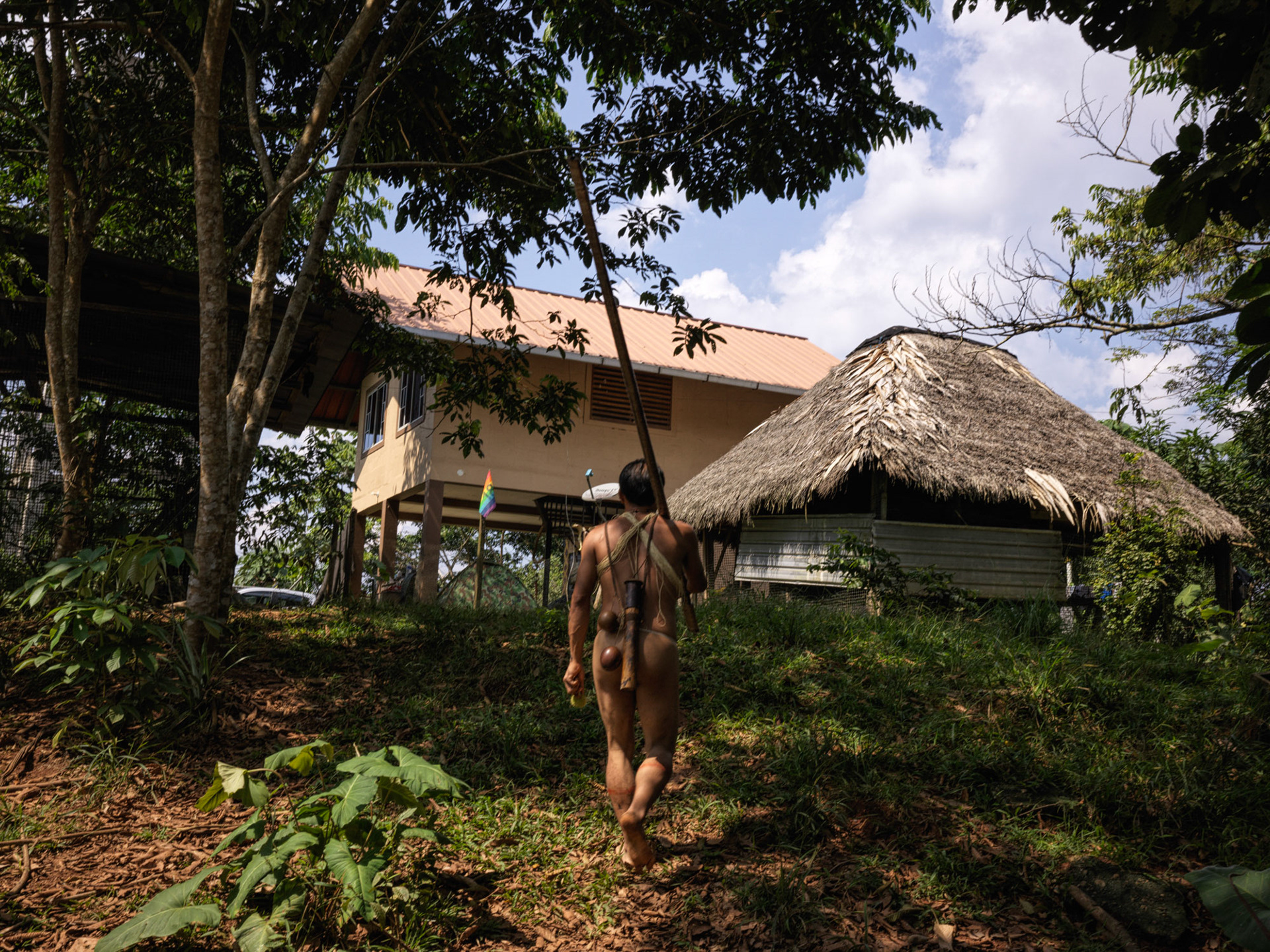
The petrol companies provide concrete housing units with facilities s.a. electricity and rainwater tanks to the local tribes as an attempt to soothe the impactful situation. For some a welcoming development, for others, salt on a growing wound.
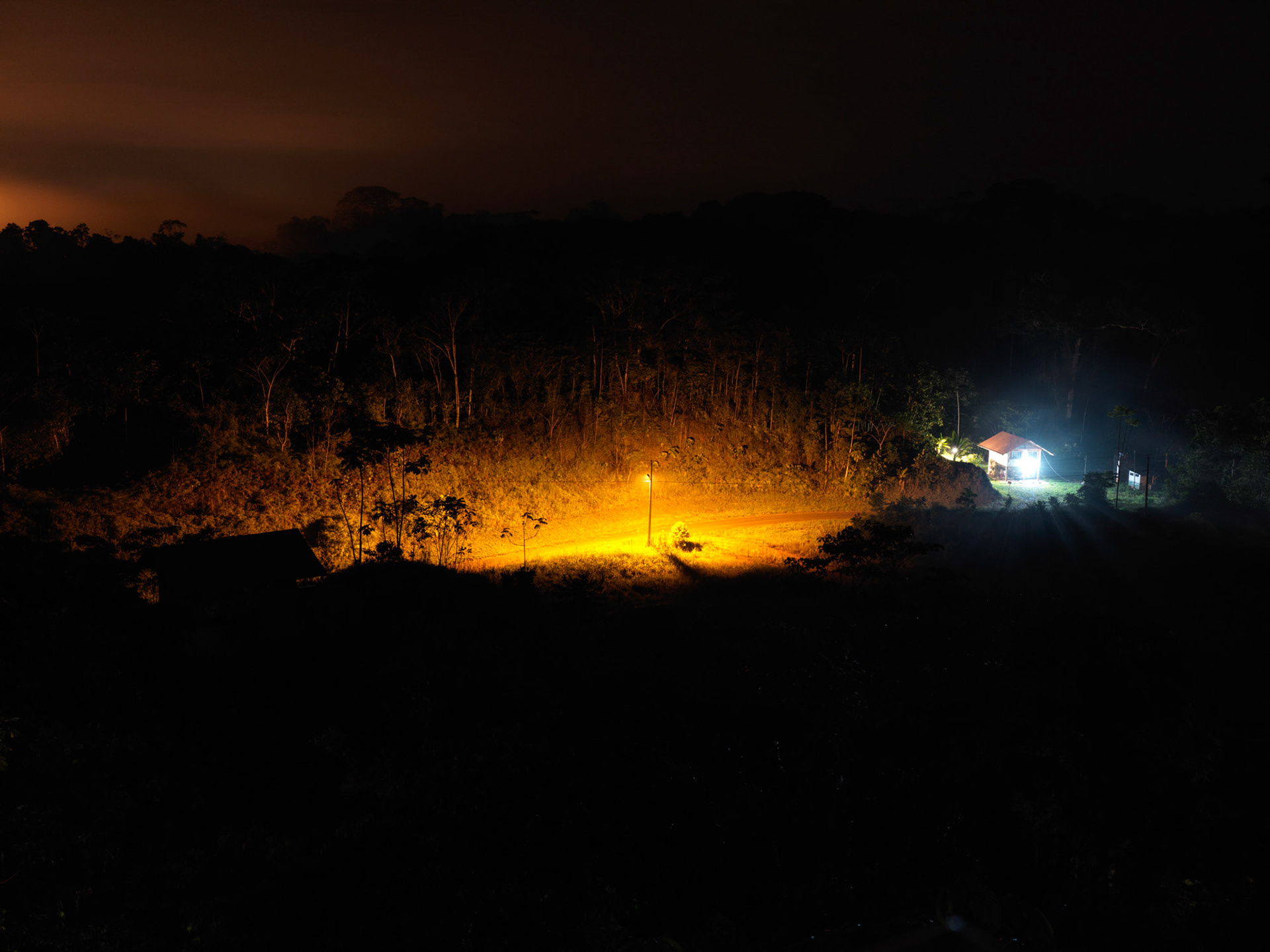
The petrol companies provide concrete housing units with facilities s.a. electricity and rainwater tanks to the local tribes as an attempt to soothe the impactful situation. In the left corner, the night sky illuminates by the open flares of nearby oil stations.



